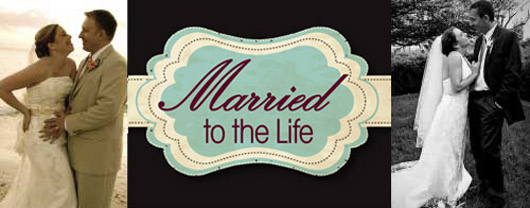 Photo by Shari Bare Photography
Photo by Shari Bare Photography
In “Married to the Life,” four couples share their experiences being married to spouses in law enforcement. From differing communication styles and conflicting schedules to dealing with the fear of on-duty confrontations and why law enforcement couples may be doomed from the onset, the article takes a realistic look at police marriages, as well as offers practical advice for making it work. Below are additional resources and tips for spouses seeking help with the unique challenges of being married to someone who wears the badge.
Being married to or in a relationship with someone involved in law enforcement is hard enough. Finding ways to troubleshoot erupting conflicts in your relationship can be even harder.
Most police-centric websites focus on safety, technologies, tactics, weapons and gear. These websites are often about street survival. But they rarely offer law enforcement officers help with surviving marriage and family life.
And with today’s strapped policing budgets, how many departments can even afford to put resources toward officers’ off-duty mental health? The answer, as we all know, is not many.
Fortunately, that’s where FOPConnect.com comes in. We’ve compiled a list of books, courses, websites and other resources that can help couples navigate the sometimes-murky waters of law enforcement family life. So before you consider handcuffing your police husband to a chair to get him to listen to your troubles or think about heading to the bar instead of into your children’s arms after a bad day on the street, take a look at these resources.
Books
Find a copy of I Love a Cop: What Police Families Need to Know by Ellen Kirschman, Ph.D. Read it. Seriously. Do you wonder if the job will negatively affect your partner? Do you worry that your officer will be killed in the line of duty? Do you find yourself shutting down at home after years spent in uniform? Chances are the answer to all these questions is yes. The funny thing is, that’s relatively normal. The challenge is finding positive coping mechanisms.
That’s where this book comes in. Kirschman, a psychologist, has nearly two decades’ worth of experience working with law enforcement officers and understands the roller-coaster ride most police marriages take. I Love a Cop: What Police Families Need to Know examines trouble spots in real-world couples and offers solutions to help manage stress, increase communication and recognize warning signs, as well as suggests where to turn for help.
“I mention Kirschman’s book and Kevin Gilmartin’s Emotional Survival for Law Enforcement at every one of my courses,” says retired Naperville Police Department Sergeant and Illinois Lodge #42 member Betsy Brantner Smith, who teaches several classes that aim to show law enforcement couples how to build successful relationships.
Classes
Now happily married to retired Arizona State Police Lieutenant and Arizona Lodge #32 member Dave Smith (with whom she runs police training business Dave Smith & Associates) and mom/stepmom to four children, Brantner Smith developed “Married to a Crimefighter” after experiencing difficulties in her first two marriages (both to fellow cops). “It’s fun to be all in love and say, ‘We’re going to get married,’” she says. “But if you’re in this for the long haul, you’ve got to talk about a lot of things related to this career beforehand.”
In the class, Brantner Smith takes a frank approach to divorce rates, substance abuse and police suicide. If you want a straightforward discussion about being married to the life, this is it. She recommends that officers attend with their spouses or partners.
Websites
If the thought of even having a civilized conversation with your police spouse seems daunting, you might want to check out “Strategies 101” on www.policefamilies.com. This site, co-directed by Kirschman and longtime law enforcement counselor Lorraine Williams Greene, Ph.D., offers simple solutions to encourage healthy communication between spouses and with children. You’ll learn the art of active listening (restating facts and reflecting emotions) and how to identify communication blockers common to law enforcement couples (demanding rather than asking).
“This is big in our house,” says Patricia Carlson, wife of Moorhead Police Department Officer and member of Minnesota Lodge #8 Shawn Carlson. “We do a lot of repeating what the other person said to make sure we’re getting the intended message. It’s surprising how often we don’t get it right on the first try.”
There are plenty of websites that offer support, guidance and advice to wives of officers. Among them are www.wivesbehindthebadge.org, www.nationalpolicewivesassociation.org and www.policewives.org. Most of these websites operate as blogs or forums, giving women the opportunity to share their stories or reach out (anonymously) for a virtual hug.
Additional Communication Tips
Communication and compromise are key in any successful relationship, but those skills take on an extra-special meaning in law enforcement families. Here’s a quick list of tips to employ the next time you feel overwhelmed.
Husbands and Wives
- Practice active listening: Summarize what your partner has said to you before launching into what you want to say.
- Mind your manners: Ask your partner to do something instead of ordering or demanding.
- Be clear about your needs: Your spouse is not a mind reader; explain what type of support or acknowledgement you’re seeking and avoid questioning motives.
- Use “I” messages: Take ownership of your feelings and steer clear of blame.
Parents and Children
- Watch your tone: Use a positive tone; try to avoid your “cop voice.”
- Encourage participation in family decisions: Ask your kids’ opinions; it increases their self-esteem and helps establish an open-door policy for future conversations.
- Ease your expectations: Remind yourself that your children are not the troublemaking kids you might run into on patrol; avoid bringing home the job to your children.
- Be honest: If they ask about your job, explain it truthfully and in age-appropriate terms; use it as a teaching moment to discuss civic duty.
For the full story, pick up a copy of the Winter 2012 FOP Journal.




